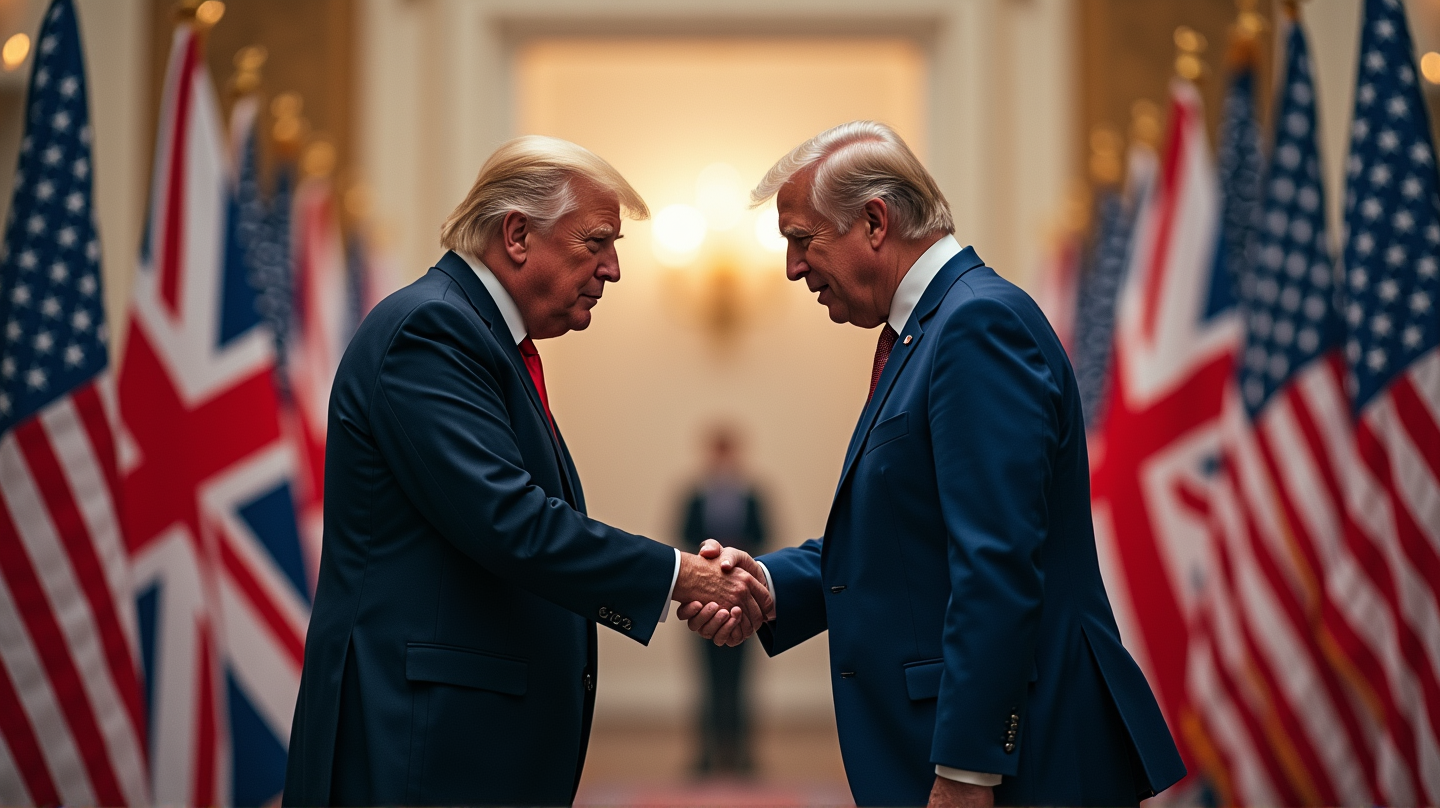UK-US Trade Deal: A Celebration in Pretense Under Labour's Lens
The UK-US deal marks a milestone, but highlights Labour's tendency to overvalue achievements.

This week, the much-anticipated UK-US trade deal was finally announced—a historic achievement lauded by Sir Keir Starmer and Donald Trump. Both leaders touted the deal as a breakthrough, though logistical hiccups marred the unveiling, pointing to an underlying disconnect.
A Good Deal Or Good Enough?
While this deal secures preferential treatment for Britain and offers some relief to industries like steel and automotive, the fact remains: it isn’t better than pre-Trump agreements. Tariffs linger, maintaining a 10 percent anchor, leaving the celebration hollow, mere salvaging rather than triumph. According to The Scotsman, even as some reductions occur, Britain’s position remains stagnant globally.
Labour’s Quest for Significance
Under Labour’s watch, there’s a pattern—a tendency to amplify lesser victories while shelving strategic foresight. The strategic narrative appears designed more to pacify political backlash than genuinely bolster the economy’s resilience. This conspicuous pageantry reveals Labour’s struggle—choosing between nurturing an illusion of success or courageously seeking substantial reforms.
Brexit’s Lingering Shadow
This deal announcement also bypasses the glaring post-Brexit reality—a reluctance to engage EU trade opportunities overtly. Despite Brexit’s fiscal strain proving more debilitating than the pandemic, admitting economic fragility takes a backseat to national pride narratives. The need for an EU deal looms amid this rhetoric—something that would significantly improve living conditions nationwide.
Political Overtones and Economic Realities
Meanwhile, the SNP’s criticism strikes a nerve, not just as opposition noise but rather grounded insights amid turmoil. With the UK economy grappling with lackluster growth and a biting cost-of-living crisis, Labour’s current rhetoric doesn’t suffice. Concrete action beyond newfound alliances is imperative for substantive change.
Looking Ahead
In conclusion, the trade deal brings limited relief, shadowed by grandiloquence rather than genuine triumph. While waiting for a potential EU deal that could reshape futures, acknowledging the true scope of economic challenges remains pivotal—a reality that Labour must sooner embrace. The rhetoric must match the reformative will if tangible prosperity is indeed the goal.